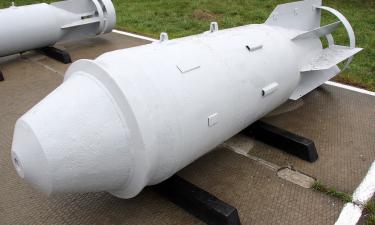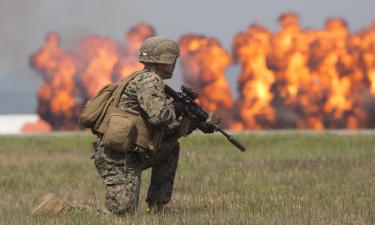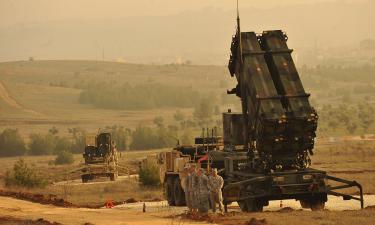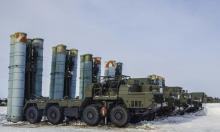Second night of riots in Estonian capital injure 66
A second night of clashes and vandalism took place in Tallinn as a result of the government's decision to remove a Soviet war memorial revered by minority Russians. 66 were injured with 6 policemen among them.
More than 500 people, many of them adolescents, were detained throughout the night as groups of vandals prowled the streets of downtown Tallinn breaking shop windows and looting stores, police spokeswoman Julia Garanza said Saturday.
Unrest also spread Friday evening to the towns of Kohtla-Jarvi and Johvi, around 180 kilometers (110 miles) east of Tallinn, with more than 40 people detainded there, local autorities said.
Like the nearby border city Narva, Kohtla-Jarvi and Johvi are dominated by Russian-speakers. In Johvi, which has 12,000 inhabitants, a group of a few hundred rioters smashed store windows and broke traffic signs, authorities said.
The trouble was sparked by the government's plan to remove a World War II statue - dubbed the Bronze Soldier - and exhume a number of Soviet soldiers buried next to it in downtown Tallinn.
Estonia's Russians - less than one-third of the country's 1.3 million population - regard the monument as a shrine to Red Army soldiers who died fighting the Nazis, but ethnic Estonians consider it a painful reminder of hardships during a half-century of Soviet rule.
In the first night of rioting, beginning Thursday, one person died and 56 were injured, including 12 police. Unrest during Friday evening and Saturday morning brings the total number of rioters detained nearly to 1,000.
On Saturday, the Russian foreign ministry demanded that Estonian authorities conduct a full probe into the death of the person killed on Thursday.
It said the victim - a young man who has been identified so far only by his first name Dmitri - was a Russian citizen permanently residing in Estonia. He was stabbed to death on a central Tallinn street during the clashes, apparently by another rioter.
"We are expressing condolences to the family and friends of the killed citizen and demanding Estonian authorities provide full information on what happened, promptly conduct an investigation and bring those guilty to justice," the ministry said.
In Moscow, various activist and pro-Kremlin youth groups staged protests on Saturday in front of the Estonian Embassy, some wearing World War II military uniforms. Protesters threw tomatoes at the embassy and insulted the Estonian ambassador, news reports said.
According to the Russian Interfax news agency, an activist group called Estonia's Anti-Fascist Committee has opened a hotline for relatives of those detained. Estonian police have not issued details of the whereabouts of the detained persons.
The rioting was the worst seen since the Baltic state won independence from the Soviet Union in 1991, and has raised concern throughout the European Union, of which Estonia has been a member since 2004.
Authorities are urging people to maintain calm and order, and police have appealed to parents to keep a closer watch on their children.
Subscribe to Pravda.Ru Telegram channel, Facebook, RSS!





